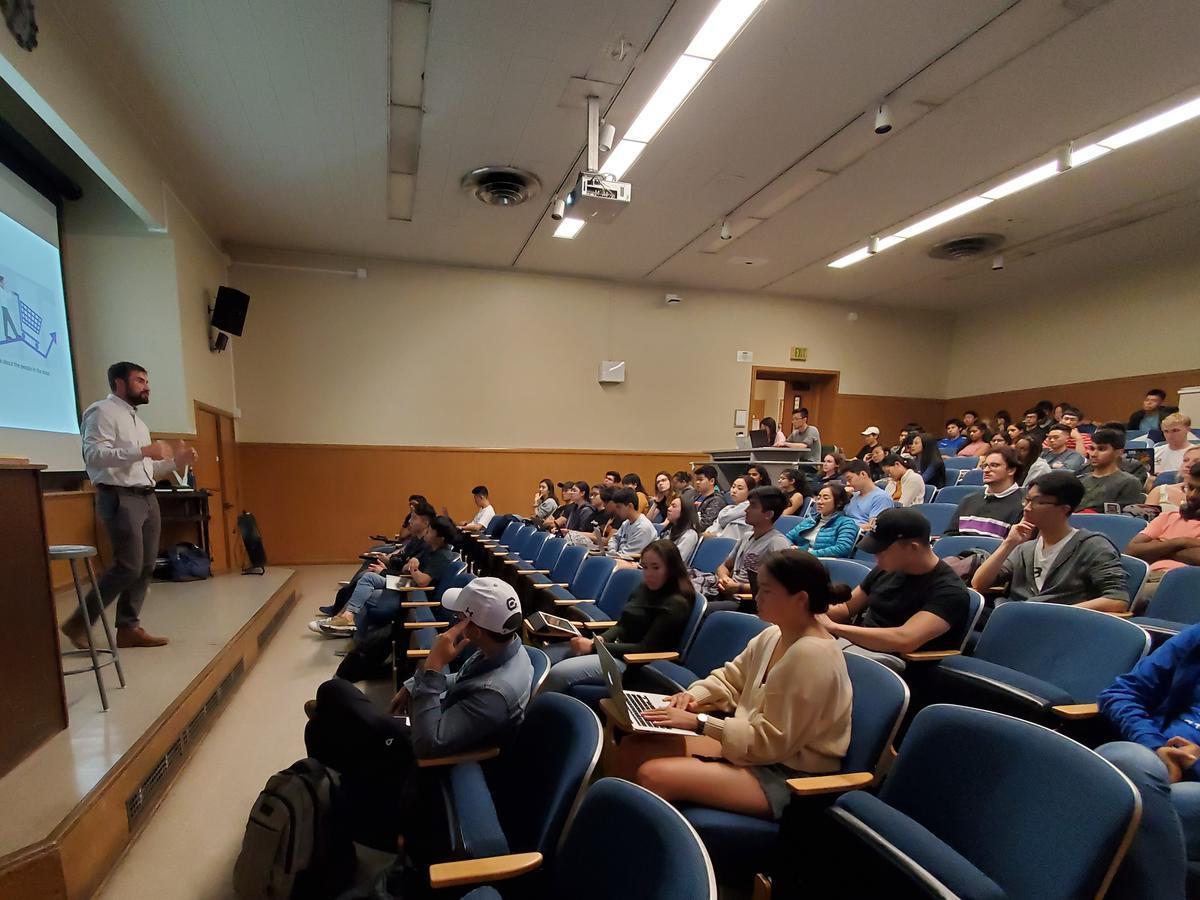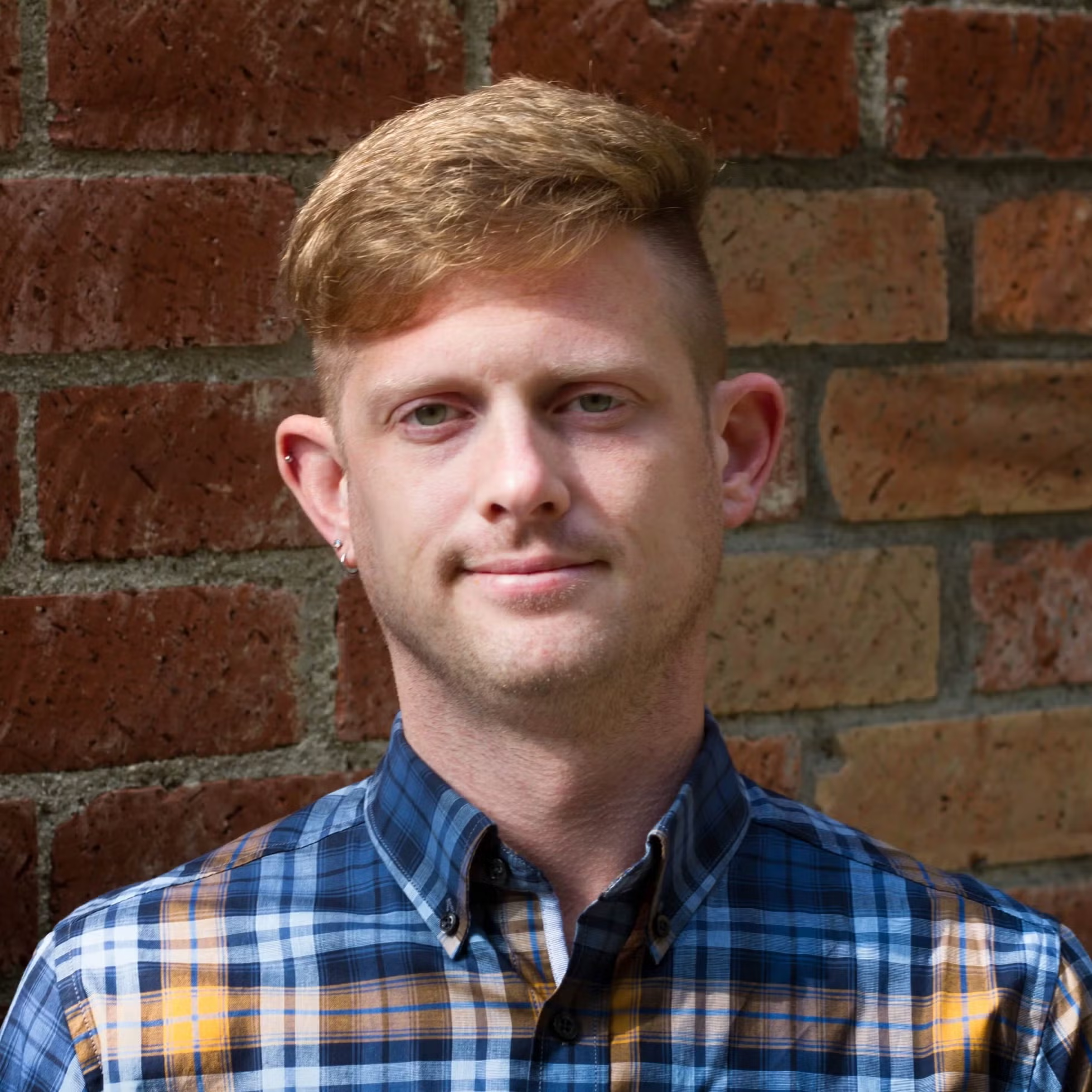Science and Mathematics Education


About the Program
The Graduate Group in Science and Mathematics Education (known informally as SESAME) offers an interdisciplinary graduate program leading to a doctoral degree in science, mathematics, technology, and engineering education. The program is designed to give graduates advanced expertise in a STEM discipline as well as in educational theory and research methodologies.
This Graduate Group was established so individuals with training or experience in a mathematical, scientific, or technical discipline can pursue advanced studies focused on educational issues in these disciplines. SESAME produces scholars who can communicate effectively with scientists, mathematicians, and engineers as well as with educational researchers and practitioners. SESAME students are expected to attain a level of expertise equivalent to that of a Master's student in their chosen discipline.
Thesis work typically consists of basic research on learning or cognition in a STEM field or the development of improved pedagogical approaches based on relevant models and research. Upon satisfactory completion of their studies and thesis work, students will obtain the degree of Ph.D. in Science and Mathematics Education.
SESAME also offers a Learning Sciences Certificate in Instructional Design, Learning Technologies, and Education Research .
Visit Group Website
Admission to the University
Applying for graduate admission.
Thank you for considering UC Berkeley for graduate study! UC Berkeley offers more than 120 graduate programs representing the breadth and depth of interdisciplinary scholarship. The Graduate Division hosts a complete list of graduate academic programs, departments, degrees offered, and application deadlines can be found on the Graduate Division website.
Prospective students must submit an online application to be considered for admission, in addition to any supplemental materials specific to the program for which they are applying. The online application and steps to take to apply can be found on the Graduate Division website .
Admission Requirements
The minimum graduate admission requirements are:
A bachelor’s degree or recognized equivalent from an accredited institution;
A satisfactory scholastic average, usually a minimum grade-point average (GPA) of 3.0 (B) on a 4.0 scale; and
Enough undergraduate training to do graduate work in your chosen field.
For a list of requirements to complete your graduate application, please see the Graduate Division’s Admissions Requirements page . It is also important to check with the program or department of interest, as they may have additional requirements specific to their program of study and degree. Department contact information can be found here .
Where to apply?
Visit the Berkeley Graduate Division application page .
Admission to the Program
Requirements.
- A bachelor’s degree or its recognized equivalent from an accredited institution;
- Superior scholastic record, normally well above a 3.0 GPA;
- Indication of appropriate research goals, described in the statement of purpose; and
- For international applicants whose academic work has been in a language other than English, the Test of English as a Foreign Language (TOEFL).
Selection Criteria
SESAME accepts three to six Ph.D. students each year from more than 50 applications. Applicants are judged on a number of factors; good scores and a high GPA are necessary but not sufficient. Particularly valued are potential as a researcher and educator, a strong background in a STEM discipline, and an agenda that fits well with the work of specific faculty in this small, interdisciplinary program. Applicants should clearly indicate in their statement of purpose which faculty member(s) they are interested in doing research with and why.
Experience teaching, developing instructional materials, or doing educational or psychological research in these areas will also be favorably considered. Knowledge of psychology, cognitive science, education, or statistics is helpful but not required. See SESAME Admissions for more information. SESAME accepts applications for only the Fall semester.
Statement of Purpose and Personal History
The statement of purpose and personal history are two separate essays.
The statement of purpose should succinctly explain your reasons for applying to SESAME, briefly review our relevant academic preparation and work experience, and describe your future academic or professional goals once the degree is acquired. The focus should be on your preparation, experience, and aims rather than a discussion of the trends or importance of education in general. The most successful statements are one to two pages in length and focus on the strengths and experiences of the applicant, providing the reviewers with evidence and justification for admitting those applicants who are qualified and well-suited for SESAME.
The personal history should include any relevant information not already included in the statement of purpose. Additional suggestions may be found in the Graduate Division’s Personal Statement Guide. There is no minimum length for the personal history.
These two essays are used in part to evaluate the candidate’s writing skills. Pursuant to UC Berkeley Policy, the two statements must be written by the candidate.
Three Letters of Recommendation
Ph.D. applicants should provide at least three and no more than five letters that speak directly to their ability and potential to perform academic work at the doctoral level.
Doctoral Degree Requirements
SESAME is programmatically separate from the GSE so GSE-wide course requirements do not apply. Note, however, that the Graduate Division’s requirement of EDUC 375 still applies.
A. Two SESAME Core Courses Taken in Year 1
| Code | Title | Units |
|---|---|---|
| Practicum in Science and Math Education Research and Development | 4 Units in Fall and 2 Units in Spring | |
| Research Seminar and Colloquium (Fall and Spring) | 1 |
B. Two Foundations Courses Beginning in Year 1
| Code | Title | Units |
|---|---|---|
| Cultivating Cognitive Development: From Sensorimotor Intelligence to Embodied STEM Concepts (Spring) | 3 | |
| Introduction to Cultural Historical Activity Theory (Spring) | 3 |
C. Three Methodology Courses (1 Quant, 1 Qual + 1 More) Taken at Any Time
| Code | Title | Units |
|---|---|---|
| Design-Based Research Forum | 3 | |
| Narrative across Learning Contexts | 3 | |
| Perspectives on Classroom Discourse | 3 | |
| Advanced Qualitative Methods | 3 | |
| Data Mining and Analytics | 3 | |
| Qualitative Research in Language/Literacy Education | 3 | |
| Discourse Analysis | 3 | |
| Ethnographic Methods in the Study of Language and Literacy in Traditional and Digital Environment | 3 | |
| (co)Participant Observation Research in the Field | 4 | |
| Introduction to Qualitative Research Methods | 3 | |
| Measurement in Education and the Social Sciences I | 4 | |
| Measurement in Education and the Social Sciences II | 4 | |
| Multidimensional Measurement | 4 | |
| & | Data Analysis in Educational Research II and Educational Data Analysis Laboratory II | 5 |
| Hierarchical and Longitudinal Modeling | 5 | |
| Introduction to Program Evaluation | 3 | |
| Research Apprenticeship and Qualitative Methodology Seminar I | 3 | |
| & | Data Analysis in Education Research and Educational Data Analysis Laboratory | 5 |
| Instructional Design in Science and Mathematics Education | 3 |
D. One Learning in the Discipline Course Taken at Any Time
Below are examples of courses that represent this area but this list is not exhaustive. Students are encouraged to look at courses offered each term, to consult with their advisor, and to explore graduate coursework on campus more broadly.
| Code | Title | Units |
|---|---|---|
| Design-Based Research Forum (Fall) | 3 | |
| Mathematical Thinking and Problem Solving (Fall) | 3 | |
| Introduction to Disciplined Inquiry (Fall) | 3 | |
| Instructional Design in Science and Mathematics Education (Spring, odd years. May satisfy the E requirement below.) | 3 |
E. Required: One Curriculum and Technology Design Course Taken at Any Time
Below are examples of courses that represent this area but this list is not exhaustive. You are encouraged to look at courses offered each term, to consult with your advisor, and to explore graduate coursework on campus more broadly - e.g., the School of Information .
| Code | Title | Units |
|---|---|---|
| Politics and Pedagogies at the Intersections of Data, Technologies, and Inequalities | 3 | |
| Gender, Mathematics and Science | 3 | |
| Mathematical Thinking and Problem Solving | 3 | |
| K12 Computer and Data Science Education: Design, Research, and Evaluation | 3 | |
| Data Mining and Analytics | 3 |
F. Two STEM Disciplinary Courses in the Student’s Field of Emphasis
Reflecting the range of STEM disciplinary fields and your interests, these two courses should be selected in consultation with your faculty advisor and with an eye toward your professional development.
G. Participation in a Research Group (At Least Four Semesters)
Many faculty in the GSE have one or multiple research groups that run yearlong. SESAME students typically enroll in a research group led by their advisor. However, you are encouraged to participate in multiple research groups if it will further enhance your growth. Below is a list of Learning Sciences and Human Development research groups to consider.
| Code | Title | Units |
|---|---|---|
| Academic Writing Support Group | 2 | |
| Special Problems in Mathematics, Science and Technology Education (Embodied Design Research Lab) | 2-6 | |
| Special Problems in Mathematics, Science and Technology Education (Embodied Underground) | 2-6 | |
| Special Problems in Mathematics, Science and Technology Education (Technology Enhanced Learning in Science) | 2-6 | |
| Special Problems in Mathematics, Science and Technology Education (Leveraging Learning Technologies) | 2-6 | |
| Special Problems in Mathematics, Science and Technology Education (Functions in Research) | 2-6 | |
| Special Problems in Mathematics, Science and Technology Education (Teaching for Robust Understanding) | 2-6 | |
| Special Problems in Mathematics, Science and Technology Education (Designing for Joy and Justice in Education) | 2-6 | |
| Special Problems in Mathematics, Science and Technology Education (Computational Representations in Education (CoRE)) | 2-6 | |
| Group Studies, Seminars, or Group Research--DCEMST | 1-4 | |
| Special Topics Seminars: Policy, Organization, Measurement, and Evaluation | 1-4 |
Learning Sciences Certificate
- Design courses for undergraduates and graduate students
- Use learning sciences research in design, implementation, and assessment of educational programs
- Use and refine learning technologies, including online courses, learning management systems, interactive models and simulations, and educational games
- Succeed in K-12 settings; undergraduate, graduate, and research institutions; out-of-school settings; non-profits, education startups, and industries that develop technical training and novel approaches to learning
- Meet the needs of students with varied cultural, educational, and personal experiences, including emergent bilinguals, underrepresented minorities, and students new to technology.
SCMATHE 210 Practicum in Science and Math Education Research and Development 1 - 4 Units
Terms offered: Fall 2024, Spring 2024, Fall 2023 Practical experience on an educational research or development project on campus or elsewhere for 8-12 hours per week. Class meetings augment research experience with discussions of readings and interaction with guest speakers. Practicum in Science and Math Education Research and Development: Read More [+]
Rules & Requirements
Prerequisites: Consent of instructor
Repeat rules: Course may be repeated for credit without restriction.
Hours & Format
Fall and/or spring: 15 weeks - 0 hours of fieldwork per week
Additional Format: Two hours of meeting per week.
Additional Details
Subject/Course Level: Science and Mathematics Education/Graduate
Grading: Letter grade.
Practicum in Science and Math Education Research and Development: Read Less [-]
SCMATHE 220C Instructional Design in Science and Mathematics Education 3 Units
Terms offered: Spring 2023, Spring 2021, Spring 2019 Survey of literature on design of instruction in science and mathematics, including development of computer-based instruction. Includes consideration of evaluation methods and development of instruction modules for topics in science and mathematics. Instructional Design in Science and Mathematics Education: Read More [+]
Prerequisites: 220B or consent of the instructor
Fall and/or spring: 15 weeks - 3 hours of lecture per week
Additional Format: Three hours of lecture/discussion per week.
Instructional Design in Science and Mathematics Education: Read Less [-]
SCMATHE 292 Research Seminar and Colloquium 1 Unit
Terms offered: Fall 2024, Spring 2024, Fall 2023 Discussion of current education research carried on by students, faculty, and guest speakers. A written analysis of several presentations required. Research Seminar and Colloquium: Read More [+]
Fall and/or spring: 15 weeks - 2 hours of colloquium per week
Additional Format: Two hours of colloquium per week.
Grading: Offered for satisfactory/unsatisfactory grade only.
Research Seminar and Colloquium: Read Less [-]
SCMATHE 294 Formulation of Educational Research 1 - 3 Units
Terms offered: Fall 2024, Fall 2023, Spring 2023 Development of thesis proposal under supervision of faculty member. Formulation of Educational Research: Read More [+]
Fall and/or spring: 15 weeks - 0 hours of independent study per week
Additional Format: Individual conferences with instructor.
Formulation of Educational Research: Read Less [-]
SCMATHE 295 Research 1 - 12 Units
Terms offered: Fall 2024, Spring 2024, Fall 2023 Independent research activities under supervision of a faculty member. Research: Read More [+]
Additional Format: Individual conferences.
Research: Read Less [-]
SCMATHE 299 Individual Reading and Study 1 - 5 Units
Terms offered: Fall 2024, Spring 2024, Fall 2023 Individual reading and study under the supervision of a faculty member. Individual Reading and Study: Read More [+]
Individual Reading and Study: Read Less [-]
SCMATHE 602 Individual Study for Qualifying Examination 1 - 8 Units
Terms offered: Fall 2024, Spring 2024, Fall 2023 Individual study, under the supervision of a faculty member, designed to prepare the student for Ph.D qualifying examination. Individual Study for Qualifying Examination: Read More [+]
Credit Restrictions: Course does not satisfy unit or residence requirements.
Subject/Course Level: Science and Mathematics Education/Graduate examination preparation
Individual Study for Qualifying Examination: Read Less [-]
Contact Information
Graduate group in science and mathematics education.
2121 Berkeley Way, 4th Floor
SESAME Lecturer
Lloyd Goldwasser
2121 Berkeley Way, Room 4321
Print Options
When you print this page, you are actually printing everything within the tabs on the page you are on: this may include all the Related Courses and Faculty, in addition to the Requirements or Overview. If you just want to print information on specific tabs, you're better off downloading a PDF of the page, opening it, and then selecting the pages you really want to print.
The PDF will include all information unique to this page.

People & Community

Research & Impact

Career Services

Applying for the PhD
The Fall 2025 UC Berkeley Graduate Application will open on Thursday, September 12, 2024. Click here to access the online application .
PhD Application Deadline for Fall 2025 Admission: December 3, 2024, at 8:59 PM PDT.
- The application process is completely online . All application materials (including official GRE and TOEFL/IELTS scores) are due by the application deadline of December 3, 2024, at 8:59 PM PDT.
- GRE: Required. To ensure you meet the December 3rd application deadline, please take the GRE no later than early November.
- TOEFL/IELTS: Required for eligible applicants . To ensure you meet the application deadline, please take the TOEFL or IELTS no later than early November.
- Students are admitted to the GSPP PhD Program for the fall term only, and on a full-time basis. There are no rolling admissions, and there is no spring admission for the PhD Program.
- After submitting your application, you will receive an email from UC Berkeley's Graduate Admissions Office confirming your submission. You may log back into your application to monitor the status of materials received or processed, such as fee waivers, test scores, and letters of recommendation.
- The answers to many common questions about the PhD application process can be found in our FAQ section .
- For more information about the Goldman School, refer to our 2024-2025 GSPP Program Bulletin .
PhD Application Checklist of Required Items
Before starting the online application:
- Review the application checklist for required items and instructions below. These instructions are specific to Goldman School PhD applicants for Fall 2025. Please do not submit additional or supplemental materials.
- Review the Frequently Asked Questions < here >.
- Additional Questions: Contact PhD admissions at [email protected]
|
|
Address these areas in 5-7 double-spaced pages: |
|
|
In your Personal History Statement, please describe how your personal background informs your decision to pursue a PhD in Public Policy. You may also include any relevant information on the following: How you have overcome barriers to access in higher education, evidence of how you have come to understand the barriers faced by others, evidence of your academic service to advance equitable access to higher education for women, racial minorities, and individuals from other groups that have been historically underrepresented in higher education, evidence of your research focusing on underserved populations or related issues of inequality, or evidence of your leadership among such groups. Please note that the Personal History Statement should not duplicate the Statement of Purpose. There is no page length requirement for the Personal History Statement. This essay is generally 1-2 pages, double-spaced. |
|
| Select 3 preferences for a faculty advisor if you are admitted to the program ( ). The assignment of faculty advisors is not guaranteed and is based on the availability of each faculty member. |
|
| Upload a current CV reflecting your academic and professional work experience, education, and any other relevant information. |
|
| A solo-authored, original research paper. This should be under 30 pages, double-spaced. We strongly prefer a writing sample that goes beyond just a literature review or summary of existing research. Its purpose is to make it evident that the student can undertake policy research. |
|
| Transcripts should list the name of your undergraduate or graduate institution and degree conferral date. If you studied abroad, either as part of an exchange program administered by your school or on your own, please upload those transcripts as well. In addition to unofficial transcripts, international applicants should also upload degree certificates/diplomas with evidence of degree conferral. Official transcripts will be required only if admitted. |
|
| Applicants may submit up to 5 letters of recommendation. Please follow the instructions in the online application for the online letter of recommendation submission process. Letters may arrive up until 11:59 PM PST on December 17th (14 days after the application deadline). Letters that arrive after this date are not guaranteed to be reviewed with your application. |
|
|
GRE scores are due the same day the application is due. Keep in mind that it may take a few weeks for your official scores to be received and matched to your application electronically. Our institution code is 4833 (Graduate Programs). Reservations for the GRE should be made in advance through: The Education Testing Service (ETS) (Phone: (609) 771-7670 or 1-800-GRE-CALL). |
|
| For Fall 2024, tests taken before are considered invalid even if your score was reported to Berkeley. Use institution code 4833 (Graduate Programs). You may sign up for the TOEFL at . As an exception to the TOEFL, UC Berkeley also accepts the IELTS exam. All IELTS scores must be sent electronically from the testing center, no institution code is required. Tests taken before will not be accepted. Your most recent overall Band score must be at least 7 on a 9-point scale. The address for identification purposes: University of California, Berkeley, Graduate Division, Sproul Hall Rm 318, MC 5900, Berkeley, CA 94720. GSPP does not offer TOEFL/IELTS waivers, however, some applicants may qualify for an exemption. Please review UC Berkeley's exemption criteria and direct any questions to UC Berkeley's Graduate Admissions Office at . |
|
| The application fee must be submitted with the online application and is not refundable. If you are a U.S. Citizen or current Permanent Resident, the application fee is ; for all others, the fee is Eligible applicants may apply for an . To do so, you must be a U.S. citizen or current permanent resident. International students are ineligible. Our department does not grant application fee waivers. No exceptions. |
|
| Please complete this section if you wish to address specific issues that have adversely impacted your academic performance and/or any aspect of your application. |
After submitting your application, you will receive an email from UC Berkeley's Graduate Admissions Office confirming your submission. You may log back into your application to monitor the status of materials received or processed, such as fee waivers, test scores, and letters of recommendation. Admissions decisions are typically sent in early March via email. Please check your Spam/Junk/Events folders if you do not receive your decision by early March.
Financial Support
Fellowships.
GSPP typically admits only two or three applicants each year and offers support to admitted PhD students through a combination of department fellowships, university multi-year fellowships, and teaching and research assistantships. While funding packages vary by student, incoming PhD students are generally awarded five years of funding support consisting of fees and non-resident tuition, student health insurance, and a living stipend. For admitted PhD students who secure funding from external sources outside of UC Berkeley, external funding also goes towards the five years of funding support.
All funding packages are contingent on students meeting minimum academic and residency requirements for the Goldman School and the University throughout the tenure of support. United States citizens and Permanent Residents are required to achieve California residency by the end of their first year in California to receive continued fee support.
Graduate Student Instructors
In addition, there are many opportunities for PhD students to work as graduate student instructors at GSPP and other social science departments. These appointments provide a full fee remission (in most cases) and a monthly salary.
Research Opportunities
There are many opportunities on campus for GSPP PhD students to engage in research (in many cases, in a paid research position) both at the Goldman School and elsewhere on campus. For example, research opportunities typically exist in campus departments including Energy and Resources Group, Labor Center, Global Policy Lab, California Policy Lab, People Lab, and Opportunity Lab, to name a few. These appointments may also provide a fee remission (in most cases) and a monthly salary.
Questions About the Online Application? Contact:
GSPP PhD Admissions [email protected]
PhD Program

PhD Program in Business Administration
Welcome to the Berkeley Haas PhD Program! Partner with world-class faculty for a rigorous academic program in one of eight fields of study. Join a premier business school and a leading research university with a Nobel Prize-winning tradition – where you can seek new ideas and make an impact on global business and education.
The application for fall 2025 will open on September 12, 2024, and close on December 2, 2024.
Get event announcements
Events Calendar
News & announcements, fields of study, berkeley haas phd admissions events.
Feel free to contact the PhD Admissions Office for more information.
Event schedule for the 2025 program
| August 22 | 12:00 – 1:00 p.m. (PDT) | Virtual | Closed | |
| September 13 | 9:00 – 10:00 a.m. (PDT) | Virtual | ||
| September 24 | 5:00 -8:00 p.m. (CST) | University of Minnesota, Carlson School of Management, Minneapolis, MN | ||
| September 25 | 5:00-7:30 p.m. (MDT) | University of Utah, David Eccles School of Business, Salt Lake City, UT | ||
| October 1 | 4:00 – 5:00 p.m. (PDT) | Virtual | ||
| October 7-11 | TBD | Virtual | *Registration opens August 15th | |
| October 7 | 2:00 p.m. (PDT) | Virtual | *Registration opens soon | |
| October 11 & 12 | TBD | Haas School of Business | ||
| October | TBD | The University of Texas at Dallas, Naveen Jindal School of Management, Richardson, TX | ||
| October | TBD | Tecnológico de Monterrey Business School, EGADE Business School, Monterrey, Mexico | ||
| October | TBD | Tecnológico de Monterrey Business School, EGADE Business School, Mexico City, Mexico | ||
| November 6 | 5:00 – 6:00 p.m. (PST) | Virtual | ||
| March 20-21. 2025 | TBD | Chicago, IL |
* Note : All participants are required to sign into a Zoom account before joining the virtual meetings hosted by UC Berkeley. If you do not have a Zoom account, please create a free account.
News from Berkeley Haas
Haas School Newsroom Defining Leadership Principles
Diversity at Berkeley Haas
Our Diversity Commitment The PhD Project
>Follow us on …
- Business and Public Policy
- Management of Organizations-Macro
- Management of Organizations-Micro
- Marketing Consumer Behavior
- Quantitative Marketing
- Real Estate

Berkeley Leaders for Equity and Democracy Overview

Read on Issuu
Download pdf.
Educational systems, from early childhood through university, have been complicit in producing widely inequitable outcomes with far-reaching implications for American democracy. With the stakes now higher than ever, it takes a particular person to serve in the senior-most roles of such systems, and a very special individual indeed to do so with an unflinching focus on transformation for liberation.
It is for leaders like these that UC Berkeley’s Leaders for Equity and Democracy (LEAD) EdD program was designed. LEAD seeks out bold and courageous leaders with a proven track record of transformational change. Once students are identified, the program and their faculty advisors commit to supporting them through each milestone of their doctoral journeys so that they can complete their dissertations and graduate in three years’ time.
- Equity & Inclusion

Graduate Education
Berkeley offers a variety of opportunities for graduate students, including master's programs and PhD programs with interdisciplinary designated emphases in data science.

Computational Biology
Ph.D. in Computational Biology
The main objective of the Computational Biology Ph.D. is to train the next generation of scientists who are passionate about exploring the interface of computation and biology and committed to functioning at a high level in both computational and biological fields.
Designated Emphasis in Computational and Genomic Biology
The Designated Emphasis is a specialization offered adjunct to affiliated doctoral degrees for students with research interests in computational biology and genomics. DE students receive a solid foundation in the different facets of computational/genomic research and the ensuing competitive edge for the most desirable jobs in academia and industry, which increasingly require interdisciplinary training.

Computational Precision Health
Ph.D. in Computational Precision Health
Students in the Ph.D. in Computational Precision Health develop skills and expertise in both the computational sciences (machine learning and AI, natural language processing, statistical inference and modeling, data standards, parallel computing and data at scale, etc.) and health sciences (clinical decision sciences and cognitive informatics, clinical delivery, clinical research, implementation science, health information policy, etc.).
Designated Emphasis in Computational Precision Health
Current UCSF and UC Berkeley PhD students from affiliated programs can incorporate CPH courses and advising into their Ph.D. Designated Emphasis students will receive a solid grounding in the fundamentals of computational precision health, with training in the application of computation to the practice of medicine and public health.

Electrical Engineering and Computer Sciences
Master of Engineering (M.Eng.)
The Master of Engineering program offers innovative graduate courses on scientific and technical topics, organized by technical concentrations that match student interest.
Master of Science (M.S.) and PhD in Electrical Engineering or Computer Science
The Master of Science (M.S.) and Doctor of Philosophy (Ph.D.) programs emphasize research preparation and experience.
Joint Bachelors/Masters (5th Year M.S.)
This program is available only to Berkeley EECS and CS L&S Undergraduates. It is a five year combined Bachelor/Master's program geared toward outstanding and highly motivated students who desire a program of study that offers greater breadth than is practical in the B.S. or B.A. programs alone.

Master of Arts (M.A.) in Statistics
Professional master's program candidates are engaged in a full-time program for one year (with a possibility of a third semester depending on circumstances). The program is designed to prepare students for careers in industries that require statistical skills.
Ph.D. in Statistics
The Statistics Ph.D. program welcomes students from a broad range of theoretical, applied, and interdisciplinary backgrounds, and provides rigorous preparation for a future career in statistics, probability, or data science. Students in the Ph.D. program take core courses on the theory and application of probability and statistics during their first year.

Designated Emphasis in Computational and Data Science and Engineering
The College of Computing, Data Science, and Society (CDSS) sponsors a Designated Emphasis in Computational and Data Science and Engineering, a program committed to the development of new curricula and expanded programs aimed at the development and use of numerical and computational tools to further research across multiple disciplines.
PhD in Social Welfare
Berkeley Social Welfare’s doctoral program is designed to inspire independence and originality of thought in pursuit of knowledge. We develop scholars who make significant contributions to social work and social welfare teaching, research, policy development and analysis, and administration.
Our doctoral students are trained and equipped with the knowledge of professional practices, policies and programs required to address a wide range of contemporary societal problems. In addition to providing the educational climate conducive to creating innovative research scholars, we also train future educators who can inspire the next generation of social work practitioners and researchers.
Nationally and internationally recognized as leaders in their fields, our pre-eminent faculty conducts cutting-edge research on major issues facing California, the U.S. and the world. Berkeley Social Welfare has more faculty fellows of the American Academy of Social Work and Social Welfare than any other school.
Doctoral Studies in Social Welfare
Social Welfare doctoral students design and pursue an individualized program of work tailored to their intellectual interests, and aligned with specialized research areas of faculty mentors and supervisors from Berkeley Social Welfare, and additional distinguished departments across the Berkeley campus.
Doctoral coursework includes seminars in research methods, statistics, theory and other related areas. Required courses for doctoral students focus primarily on research methodology. In addition, students enroll in elective courses, seminars, and independent tutorials useful for mastering selected fields of study, preparing for the qualifying examination, and developing competence in research methods. For specific degree requirements and descriptions of courses offered, please see the Berkeley Academic Guide to Social Welfare .
Students are also encouraged to select courses from the rich and varied offerings in other University departments. Doctoral students at Berkeley are required to include faculty from outside their major discipline on qualifying and dissertation committees; and Social Welfare PhD students have access to world-class Berkeley faculty in top-ranked programs.
A minimum of three years is necessary to complete the program (two years of full-time course work and one year for the dissertation), although most students require a longer period. In Social Welfare, it is expected that all doctoral students will complete the PhD degree within ten semesters, having taken the Qualifying Exam by the end of the third year and filed the dissertation by the end of the fifth year.
Combined MSW/PhD Degree Program
A Combined MSW/PhD Program option is also available specifically for individuals who possess a strong interest in and exceptional capacity for research and scholarly work; and who wish to pursue a continuous program of graduate study leading to the MSW and the PhD degrees.
Admission to the PhD Program
Berkeley Social Welfare prefers applicants to doctoral study who hold a master's degree in social work or social welfare, or have comparable preparation in a closely related field, and who show evidence of intellectual and other qualifications essential to successful doctoral study. In reviewing applications we seek to determine whether the applicant's particular objectives can be met in our doctoral program at Berkeley. Please note that we are pausing doctoral admissions, including our Combined MSW/PhD program, for entry to the 2025-2026 academic year.
For complete admission requirements and application instructions, please visit PhD Admissions .
Tuition, Fees and Financial Aid
Berkeley PhD students pay UC Berkeley Graduate Academic Fees. For current rates please visit the Office of the Registrar's Fee Schedule .
Berkeley Social Welfare offers a competitive funding package for newly admitted doctoral students that will typically include three years of departmental support, plus an additional year of support from the Graduate Division Doctoral Completion Fellowship available upon becoming eligible. Doctoral support packages normally include payment of tuition and fees (including student health insurance), plus an annual allowance for living expense support (currently estimated at $28,000 per academic year), funded through a combination of academic student employment as a Graduate Student Instructor (GSI) and/or Graduate Student Researcher (GSR), and university or departmental fellowship award(s).
For more information about fees, fellowships and financial support for doctoral students, please see our guide to Financing Your Graduate Degree .
Apply to PhD!
Learn about admission requirements and the application process

Berkeley Academic Guide
Class schedules, course descriptions, and degree requirements
Resources for Current Students
- UC Berkeley
- Sign Up to Volunteer
- I School Slack
- Alumni News
- Alumni Events
- Alumni Accounts
- Career Support
- Academic Mission
- Diversity & Inclusion Resources
- DEIBJ Leadership
- Featured Faculty
- Featured Alumni
- Work at the I School
- Subscribe to Email Announcements
- Logos & Style Guide
- Directions & Parking
The School of Information is UC Berkeley’s newest professional school. Located in the center of campus, the I School is a graduate research and education community committed to expanding access to information and to improving its usability, reliability, and credibility while preserving security and privacy.
- Career Outcomes
- Degree Requirements
- Paths Through the MIMS Degree
- Final Project
- Funding Your Education
- Admissions Events
- Request Information
- Capstone Project
- Jack Larson Data for Good Fellowship
- Tuition & Fees
- Women in MIDS
- MIDS Curriculum News
- MICS Student News
- Dissertations
- Applied Data Science Certificate
- ICTD Certificate
- Cybersecurity Clinic
The School of Information offers four degrees:
The Master of Information Management and Systems (MIMS) program educates information professionals to provide leadership for an information-driven world.
The Master of Information and Data Science (MIDS) is an online degree preparing data science professionals to solve real-world problems. The 5th Year MIDS program is a streamlined path to a MIDS degree for Cal undergraduates.
The Master of Information and Cybersecurity (MICS) is an online degree preparing cybersecurity leaders for complex cybersecurity challenges.
Our Ph.D. in Information Science is a research program for next-generation scholars of the information age.
- Fall 2024 Course Schedule
- Summer 2024 Course Schedule
The School of Information's courses bridge the disciplines of information and computer science, design, social sciences, management, law, and policy. We welcome interest in our graduate-level Information classes from current UC Berkeley graduate and undergraduate students and community members. More information about signing up for classes.
- Ladder & Adjunct Faculty
- MIMS Students
- MIDS Students
- 5th Year MIDS Students
- MICS Students
- Ph.D. Students

- Publications
- Centers & Labs
- Computer-mediated Communication
- Data Science
- Entrepreneurship
- Human-computer Interaction (HCI)
- Information Economics
- Information Organization
- Information Policy
- Information Retrieval & Search
- Information Visualization
- Social & Cultural Studies
- Technology for Developing Regions
- User Experience Research
Research by faculty members and doctoral students keeps the I School on the vanguard of contemporary information needs and solutions.
The I School is also home to several active centers and labs, including the Center for Long-Term Cybersecurity (CLTC) , the Center for Technology, Society & Policy , and the BioSENSE Lab .
- Why Hire I School?
- Request a Resume Book
- For Nonprofit and Government Employers
- Leadership Development Program
- Mailing List
- Jobscan & Applicant Tracking Systems
- Resume & LinkedIn Review
I School graduate students and alumni have expertise in data science, user experience design & research, product management, engineering, information policy, cybersecurity, and more — learn more about hiring I School students and alumni .
- Press Coverage
- I School Voices

- Distinguished Lecture Series
- I School Lectures
- Information Access Seminars
- CLTC Events
- Women in MIDS Events

Ph.D. Applicant Feedback Program
Several current I School Ph.D. students have volunteered to provide application feedback to Ph.D. program applicants.
Applicants may receive one round of meaningful written feedback on their resume and application essays from a current Ph.D. student. Participating in the I School Applicant Feedback Program is completely voluntary and is separate from the Ph.D. admissions process. Comments and advice are designed to help prospective applicants better communicate their skills and strengths in the essay and resume, and to make a more informed decision about the I School graduate program.
All applicants are invited to request feedback, but we especially welcome feedback requests from communities that have historically been underrepresented in higher education, including BIPOC (Black, Indigenous, and People of Color), non-cisgender people, LGBTQIA+/queer applicants, applicants with disabilities, first-generation college students, and applicants from low-income backgrounds.
Dates & Deadlines
Form opens: October 1, 2024
Request deadline: November 1, 2024
Request Feedback
Students aim to return feedback within a week. In the event of unforeseen delays, we will contact you to provide an update.
Note: The I School Applicant Feedback Program is offered 100% by students. Student participants are not trained by and do not represent the admissions committee or the I School administration. Students are volunteers, and the feedback does not guarantee admission to the I School.
If you have any additional questions, please feel free to contact Chase Stokes or Naitian Zhou.

Ph.D. in Information Studies Student Directory
Text Sample
Anna Robinson-Sweet (she/her)
Year Entered Program 2024
Michelle Caswell
Daryl Barker (he/they)

[email protected] | LinkedIn | Website
Teaching and Research Interests
- Teaching and Learning
- Instructional Design
- Non-Traditional Students
- Community College
- MLIS, UCLA Graduate Certificated, Digital Humanities
- B.A. in Politics, Occidental College
Robert D. Montoya
Gregory Leazer

Student Bio
Jiarui Sun is a Ph.D. student in the Department of Information Studies at UCLA. His research interests include digital recordkeeping & archival informatics, information resource management & digital government, community-based archives, and qualitative research methods & design. Specifically, his current work focuses on the ethical considerations triggered by technology applications in archives.
- Digital Recordkeeping and Archival Informatics
- Information Resource Management and Digital Government
- Community-Based Archives
- Qualitative Research Methods and Design
Awards, Honors, and Fellowships
- Oliver Wendell Holmes Award, Society of American Archivists 2021
- Ed&IS Summer Research Funding, School of Education and Information Studies, UCLA 2020
- James V. Mink Scholarship, Society of California Archivists 2020
- Dean’s Scholar, School of Education and Information Studies, UCLA 2019
- Tung-Li & Hui-His Yuan Family Fellowship, School of Education and Information Studies, UCLA 2019
Research Centers
- UCLA Center for Digital Humanities
Anne J. Gilliand
Kai Nham (he/they)

[email protected] | Website
As a queer and trans Chinese-Vietnamese son of a refugee from Vietnam and immigrant from Hong Kong, Kai is deeply interested and committed to how our communities can imagine and build new worlds for ourselves. His current research interests include how information infrastructures help build and maintain trans of color care webs, as well as the development of grassroots and community-based interventions and technologies to resist violence and build new futures.
- Information Infrastructure
- Care Ethics
- Critical Data Studies
- Trans Studies
- Master of Information and Data Science, University of California, Berkeley
- Bachelor of Arts, University of California, Berkeley
Publications
- Haimson, Oliver L, Kai Nham, Hibby Thach, and Aloe DeGuia. “How Transgender People and Communities Were Involved in Trans Technology Design Processes,” 2023.
Safiya U. Noble
Megan Riley

CV | Website
Bay Area born-and-raised doctoral student in UCLA’s Department of Information Studies focusing on the political economy of libraries, particularly labor and policing. Graduate of UCLA’s MLIS program in 2020, focusing on labor issues in LIS, special collections and archives; co-president of SAA @ UCLA and co-chair of UCLA’s SCA student chapter, 2019-2020. Committed to police- and policing-free libraries and a member of the Abolitionist Library Association. Personal hobbies and interests include crosswords, basketball, surfing, and ceramics.
- Labor Issues in Libraries and Archives, Especially Precarious Labor and Organized Labor
- Police, Policing, and Carceral Spaces and Practices in Libraries and Archives
- The Production of Space in Libraries and Archive
- B.A. in Comparative Literature, UC Berkeley (2011)
- MLIS, UCLA, 2020
- “The Stories We Tell: Precarious Labor and Archival Myths” May 2020 Acid Free’s “Fictions” issue, published by the Los Angeles Archivists Collective. https://www.laacollective.org/work/precarious-labor-archival-myths
Sarah Roberts
Pietro Santachiara

[email protected] | LinkedIn | Twitter | Website
Pietro Santachiara is the Bernard and Martin Breslauer Fellow and a Ph.D. student in the Department of Information Studies at UCLA. His research deals with knowledge organization and modeling, classification of cultural heritage artifacts, and digital humanities.
- MLIS; University of California, Los Angeles
- M.Sc. in Communication, Technology-Enhanced Communication for Cultural Heritage; University of Lugano (Switzerland)
- B.A. in Communication Studies, Mass-media concentration; University of Modena and Reggio Emilia (Italy)
- Drucker, J., Polack, P., & Santachiara, P. (2022). Heterochronologies: A Platform for Correlation and Research in Temporal Graphics . Digital Humanities Quarterly, 16(3).
- UCLA Digital Humanities Center
Johanna Drucker
Tianji Jiang

[email protected] | CV | LinkedIn
Tianji Jiang is a Ph.D. student in the Department of Information Studies at the University of California, Los Angeles, advised by Professor Sarah T. Roberts. He is also an assistant student researcher at Richard C. Rudolph East Asian Library. Prior to joining UCLA, Tianji obtained a B.M. (2019) in Information Management and Information System and a B.Ec. (2019) in Economics from Peking University.
- Knowledge Organization
- Research Data Curation
- Library Management
- Social Media Studies
- China’s National Scholarship for Undergraduate Student in the year of 2017-2018
- Bachelor of Management in Information Management and Information System, Department of Information Management, Peking University (2019)
- Bachelor of Economics, The National School of Development, Peking University (2019)
- Jiang, T., & Li, L. Q. (2021). Image-building of Public Library from Readers’ Perspective A Case Study on the Northern Haidian Library, accepted by and will be presented at iConference 2021.
- Jiang, T., Zhang Y., & Zhou, Q. (2021). A Research on the Improvement Strategy of Big Data Industry Policy made by Local Government in China. Journal of Modern Information 41(2), 132-140, 161.
Administrative Manager
Ryan Lebre [email protected] 310-983-3206
Admissions Officer
Michelle Maye (310) 825-5269 [email protected]
Office of Student Services
1009 Moore Hall (310) 825-8326
Information Studies Student Governing Board (ISGB)
© 2024 Regents of the University of California
- Accessibility
- Report Misconduct
- Privacy & Terms of Use

Info for Morgan State University
- Future Students
- Current Students
- Faculty & Staff
- Parents & Families
- Alumni & Friends
- For the Media
Search Morgan State University
Commonly searched pages.
- Payment Plan
- Housing Application
- Comptroller
- Advanced Studies, Leadership, and Policy
- Assessment, Evaluation, and Research
- Community College Leadership
- Comparative and International Education
- Higher Education and Student Affairs
- Mathematics & Science Education
- Urban Educational Leadership
- PhD in Education - Overview
- Program Delivery
The Ph.D. in Education equips students to systematically examine the theoretical and practical challenges evident across the P-20 educational pipeline to address the issue of inequity. The degree program will prepare individuals for careers in academia, research, and policy centers, as well as for high-level administration and curricular positions at educational institutions and agencies.
The program offers seven concentrations:
- Comparative and International Education
- Higher Education Leadership
- Mathematics Education
- Science Education
The educational objectives for the PhD in Education are the following:
- To advance research on inequity issues within the full P-20 educational pipeline.
- To prepare students to use original and existing research to transform educational practice.
- To equip future educational researchers with innovative teaching experience and cutting-edge transdisciplinary research experience to become attractive job candidates on the academic market.
- To prepare candidates to create a collaborative learning community that integrates all the various educational contexts.
- To prepare candidates to be critical thinkers who focus on leadership, policy, ethics, and social justice.
Candidates for the PhD in Education degree must complete a minimum of 54 academic credit hours, pass the comprehensive exam, and submit and successfully defend a research-based dissertation. All students in the program will be expected to complete academic core and research courses of 27 credits and concentration courses of 27 credits. The concentration courses are presented on the the relevant pages and in the PhD Program Handbook .
The Core 27 credits consist of the following:
Academic Core (9 Credits):
- ASLP 600 Introduction to Doctoral Studies and Academic Writing (3)
- ASLP 640 Race and Public Policy in Education (3)
- ASLP 642 Equity and Social Justice in Education (3)
Research (15 Credits)
- ASLP 620 Introduction to Educational Research (3)
- ASLP 700 Methods of Inquiry (3)
- ASLP 710 Quantitative Research Methods (3)
- ASLP 712 Qualitative Research Methods (3)
- *Students will complete an additional 3 credits of advanced research electives related to their chosen methodology.
Dissertation (3 credits)
- ASLP 997/998 (3)
The department offers different delivery options for each concentration. For a full listing please click here .
Students in concentration areas that offer both the High and Low Residency option will be required to select their delivery mode upon admission into the program. Students who wish to switch their delivery option will need to make a formal request to the program direction with an acceptable reason.
Prospective students should complete this brief interest form to be connected to a faculty member for more information.
Admissions Deadlines:
- Priority deadline for those seeking graduate student funding : January 15
- Assessment, Evaluation, and Research: March 1
- Community College Leadership: July 1
- Comparative and International Education: March 1
- Higher Education Leadership: March 1
- Mathematics Education: July 1
- Science Education: July 1
- Urban Educational Leadership: March 1
The School of Graduate Studies coordinates the application process.
Our program offers three types of funding:
- Graduate Research Assistantships
- Graduate Teaching Assistantships
- Tuition Awards
Many of our students also leverage their Tuition Remission benefits from local institutions like the USM schools , JHU , or Morgan State . Tuition Remission is determined and coordinated by your institution. We encourage you to speak with your HR representative about how to use these benefits.
Contact Information
Dr. Frimpomaa Ampaw Chair Department of Advanced Studies, Leadership and Policy Banneker Building #315J
P: (443) 885-1908 E: [email protected]
Interested in Our Programs? Please contact us: https://forms.gle/YU6U6CcEDYyhSraj8
Financial Aid
The Department of Geography strives to support every student admitted to the program, within the constraints of available resources. Support typically includes some work as a teaching assistant or research assistant and some fellowship stipend to allow students time for their own work.
Students with the most successful academic records are nominated for, and generally receive, multi-year university fellowships of stipends plus tuition for two years. Combined with department support in the form of teaching or research assistantships and stipends for two more years, these provide four years of support, with a fifth year of stipend for advancing to candidacy within normative time. You can read more about other type’s of fellowships and support on the Graduate Division Fellowships page .
Other students are typically offered at least one semester of teaching assistantship and one semester of full or partial stipend for the first three years, with a fourth year of stipend for advancing to candidacy within normative time.
In later years, the department and dissertation advisors support students in applying for any national grants for which they are eligible. Over the last ten years, our students have been awarded an average of around $100,000 a year in extramural funding. In addition, we have enough teaching assistantships for advanced students to bridge gaps in fellowship support.
STUDENT PARENTS
If you have children, you are eligible for various forms of aid from the Graduate Division – above and beyond any Department support.
One of the most important is a “Parent Grant” which provides up to $8,000 of additional stipend per academic year for child support. There is also subsidized Family Student Housing and Day Care. For more information and deadlines see the Financial Support for Student Parents page.
Other Graduate Division resources, including Childbirth Accommodation Funding, are found in the Families Matter’s Resource Guide .
(DS421) NSF RESEARCH TRAINING PROGRAM
DS421 is an two-year interdisciplinary graduate training program with the mission to prepare a new generation of researchers and policy makers to address challenges at the intersection of natural, social and data sciences by translating data into evidence-based analysis of impacts and solutions. The DS421 program is open to incoming and first year PhD students from all departments and schools at UC Berkeley.
The program seeks a diverse cohort of students with a desire to pursue interdisciplinary research addressing coupled human-natural systems with a strong quantitative, data science component. Applicants should have a background in one or more of the following areas: natural or environmental science, social science, public policy, landscape architecture, environmental planning, statistics, computer science, or related fields.
- Current Students
Half-million-dollar grant will create peer review and science communication curriculum for grad students
- By Elise Proulx
- 3 min. read ▪ Published August 29
- Share on LinkedIn
- Share on Facebook
- Share on X (Twitter)
The ability to critically evaluate scientific literature is crucial for graduate students as they start their careers in science.
However, a lack of systematic training can hamper students’ future ability to review the work of others in their field.
“Reviewing scientific literature and analyzing literature is a huge part of graduate student education,” says Sarah Klass , a postdoctoral fellow in the Keasling Lab at UC Berkeley and the Joint Bioenergy Institute and the lead recipient of a $499,992, two-year grant from the National Science Foundation (NSF). “But there’s no formal education” on how to do it, Klass continues.
To attempt to remedy this disconnection, Klass and her partners will use the NSF grant to fund a new curriculum that will immerse graduate students in the sciences in the “principles and practices of peer review and science communication with a heavy emphasis on building practical skills.” Peer review is the system in which multiple experts review scientific papers to ensure quality before publication.
The team will spend the first year developing a curriculum. The second year, UC Berkeley grad students will put it to the test. The grant team, which will also include UC Berkeley School of Public Health professor Stefano M. Bertozzi and a to-be-determined team of UC Berkeley graduate students, will collect data on impact and effectiveness.
The proposed curriculum builds upon the success that the journal Rapid Reviews\Infectious Diseases ( RR\ID ) has had in making rigorous peer review faster and more efficient, partially by training UC Berkeley undergraduate students. RR\ID is an open-access journal that prioritizes rapid and efficient peer review alongside offering student training and mentoring and supporting the democratization of academic publishing through partnerships with a dozen academic institutions in low- and middle-income countries that will be established over the next three years. Bertozzi is the journal’s editor-in-chief
“As part of UC Berkeley Undergraduate Research Apprentice Program, RR\ID editors have offered a workshop allowing undergraduates to participate in research projects with faculty members for academic credit, focusing on topics of special interest,” the grant application reads. “The aim is to familiarize undergraduate students with contemporary scientific and academic research, peer review processes, and publication standards, particularly concerning infectious diseases.”
The new curriculum project will pilot a curriculum for a training program that will initially involve STEM graduate students enrolled at UC Berkeley, specializing in a broad spectrum of fields related to infectious diseases, data science, public health, engineering, and basic biological and chemical sciences. “By providing graduate students with the necessary tools and insights to critically evaluate scientific literature and review preprints, our goal is to improve graduate student research/literature comprehension and engagement with their respective STEM fields,” the team said.
“We are trying to teach good peer review skills to graduate students so they can help enable the rapid dissemination of scientifically vetted literature that can have an immediate impact on people’s lives,” says Klass.
“Above all, the intellectual discourse that needs to happen around science is closed off and isolated,” says Hildy Fong Baker, executive director of the UC Berkeley Center for Global Public Health and managing director of the project. “We are creating an avenue for people to be part of an ecosystem at the beginning of their careers.”
The course materials created during the two-year grant period will eventually be available to all via open access to encourage other institutions to adopt and adapt the curriculum worldwide.
People of BPH found in this article include:
- Stefano Bertozzi Professor, Health Policy and Management
More in category “School News”:
Meet our new faculty: carly strouse, meet our new faculty: xiudi li, alum melissa stafford jones on her career developing meaningful policy approaches in public health, uc berkeley school of public health welcomes inaugural cohort of impact fellows.

COMMENTS
During the first two years of study, the Berkeley PhD in Education introduces you to research on current issues in education, theories of learning, human development, and inequality, educational policy, and research methods. Students proceed through the program during the first two years in a cohort, taking core courses together.
When you apply for graduate admission, you will be required to submit the application fee using a major credit card. If you are a U.S. citizen or current permanent resident, the application fee is $135; for all others, the fee is $155. You may qualify for an application fee waiver. To check eligibility, visit the.
The Berkeley School of Education offers Doctor of Philosophy (PhD), Master's of Arts (MA), and credential degree programs as well as an Education major and minor for undergraduate students. PhD and Master's Programs at the Berkeley School of Education. Students collaborate in dynamic learning environment that develops expertise in areas including:
Learning Sciences and Human Development. Faculty study, design and participate in transformative approaches to individual and social development, approaches within schools and classrooms, and across diverse sites and contexts in communities, workplaces and social movements. Students will examine how to promote equity and honor socio-cultural ...
Here at Berkeley's School of Education, we're challenging and changing the way people think about education. Our research, teaching, and practice approaches support a bold vision of public education that has as its goal equity, inclusion and belonging at all levels - classroom, school, community, district, state, national, and global - and that positively impacts personal growth and ...
The Berkeley School of Education offers Doctor of Philosophy (PhD), Master's of Arts (MA), and credential degree programs as well as an Education major and minor for undergraduate students. PhD and Master's Programs at the Berkeley School of Education. Students collaborate in dynamic learning environment that develops expertise in areas including:
BSE now offers a Bachelor's degree in Educational Sciences. We know that education not only happens in schools and higher education, but also includes myriad forms of learning across contexts and the life span. Educational Sciences as an academic discipline explores the field of education via academic inquiry and direct engagement with schools ...
Graduate education embraces study for all degrees and certificates beyond the bachelor's degree — principally, the master's and doctoral degrees. Graduate degrees fall into two broad categories: Academic: Degrees awarded in recognition of a student's command of a wide range of subject matter and research methodologies within an academic ...
The Graduate Group in Science and Mathematics Education (known informally as SESAME) offers an interdisciplinary graduate program leading to a doctoral degree in science, mathematics, technology, and engineering education. The program is designed to give graduates advanced expertise in a STEM discipline as well as in educational theory and ...
Curious and Committed Graduate Students. Our Master's program serves graduate students who have a variety of interests in topics such as learning sciences, the politics of school reform, explorations of race and inequality, and educational measurement and research methods. We look for curious and committed thinkers, intent on improving human ...
The School of Information is UC Berkeley's newest professional school. Located in the center of campus, the I School is a graduate research and education community committed to expanding access to information and to improving its usability, reliability, and credibility while preserving security and privacy.
Application Process. The 2024-2025 Graduate Admissions Application is now open. Please check your program of interest's application deadline, and submit by 8:59 p.m. PST. Reminder: Applicants may apply to only one degree program or one concurrent degree program per application term.
The Graduate School of Education at University of California, Berkeley has 29 full-time faculty on staff with a 3.1:1 adjusted ratio of graduate students to faculty. + Show More At-a-Glance
Berkeley offers a wide-range of more than 100 graduate programs, including master's, professional, and doctoral programs. We consistently have the highest number of top-ranked doctoral programs in the nation. Browse Berkeley's graduate programs and use the filters to narrow your search and learn more about each program.
Faculty. * Faculty available to advise new doctoral students. ** Professor of the Graduate School is a title for Berkeley's faculty members who are still active in research but otherwise retired. Sarah W. Freedman. Dist. Prof. of the Graduate School**. Judith Warren Little. Dist. Prof. of the Graduate School**.
The Fall 2025 UC Berkeley Graduate Application will open on Thursday, September 12, 2024. Click here to access the online application. PhD Application Deadline for Fall 2025 Admission: December 3, 2024, at 8:59 PM PDT. ... How you have overcome barriers to access in higher education, evidence of how you have come to understand the barriers ...
The School of Information is UC Berkeley's newest professional school. Located in the center of campus, the I School is a graduate research and education community committed to expanding access to information and to improving its usability, reliability, and credibility while preserving security and privacy.
Overview. The Graduate Group in Science and Mathematics Education (known informally as SESAME) offers an interdisciplinary graduate program leading to a doctoral degree in science, mathematics, technology, and engineering education. The program is designed to give graduates advanced expertise in a STEM discipline as well as in educational ...
For the academic year 2023-2024, the minimum first-year I School Ph.D. student 12-month stipend is $40,000. After the first year, Ph.D. students are typically funded through graduate student academic appointments or research positions for up to four years (eight semesters). In addition to an hourly wage, students receive fee remission that ...
Welcome to the Berkeley Haas PhD Program! Partner with world-class faculty for a rigorous academic program in one of eight fields of study. Join a premier business school and a leading research university with a Nobel Prize-winning tradition - where you can seek new ideas and make an impact on global business and education.
The School of Education welcomes visionaries and dreamers - people who don't wait for change. ... It is for leaders like these that UC Berkeley's ... supporting them through each milestone of their doctoral journeys so that they can complete their dissertations and graduate in three years' time. Publication date: August 30, 2024 ...
Graduate Education. Berkeley offers a variety of opportunities for graduate students, including master's programs and PhD programs with interdisciplinary designated emphases in data science. ... This program is available only to Berkeley EECS and CS L&S Undergraduates. It is a five year combined Bachelor/Master's program geared toward ...
Berkeley Social Welfare's doctoral program is designed to inspire independence and originality of thought in pursuit of knowledge. We develop scholars who make significant contributions to social work and social welfare teaching, research, policy development and analysis, and administration. Our doctoral students are trained and equipped with ...
The School of Information is UC Berkeley's newest professional school. Located in the center of campus, the I School is a graduate research and education community committed to expanding access to information and to improving its usability, reliability, and credibility while preserving security and privacy.
Education. Master of Information and Data Science, University of California, Berkeley; Bachelor of Arts, University of California, Berkeley; Publications. Haimson, Oliver L, Kai Nham, Hibby Thach, and Aloe DeGuia. "How Transgender People and Communities Were Involved in Trans Technology Design Processes," 2023. Advisor. Safiya U. Noble
The Graduate Division serves more than 13,000 students in over 100 graduate degree programs. We are here to help you from the time you are admitted until you complete your graduate program. We're thrilled you're considering Berkeley for your graduate study. We offer more than 100 programs for master's, professional, and doctoral students to ...
Candidates for the PhD in Education degree must complete a minimum of 54 academic credit hours, pass the comprehensive exam, and submit and successfully defend a research-based dissertation. All students in the program will be expected to complete academic core and research courses of 27 credits and concentration courses of 27 credits.
New Graduate Student Orientation UC Berkeley's New Graduate Student Orientation (NGSO) is designed to supplement orientations that are held by your academic department, school, or program. NGSO will be virtual on Aug 19-20, and in-person on Aug 27. August 20. Primer to the Office for Graduate Diversity
The DS421 program is open to incoming and first year PhD students from all departments and schools at UC Berkeley. The program seeks a diverse cohort of students with a desire to pursue interdisciplinary research addressing coupled human-natural systems with a strong quantitative, data science component.
"Reviewing scientific literature and analyzing literature is a huge part of graduate student education," says Sarah Klass, a postdoctoral fellow in the Keasling Lab at UC Berkeley and the Joint Bioenergy Institute and the lead recipient of a $499,992, two-year grant from the National Science Foundation (NSF). "But there's no formal ...